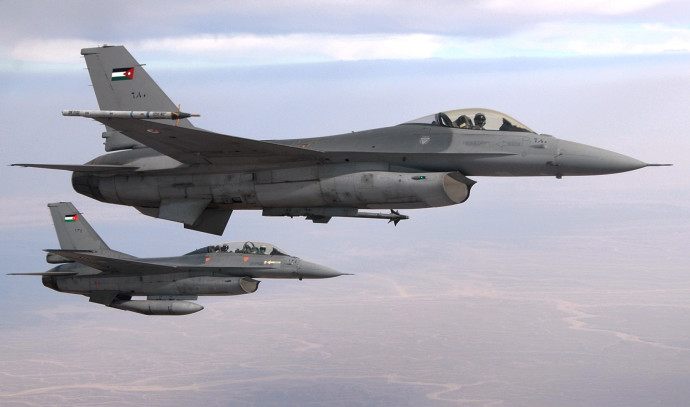Jordanian jets conducted four strikes inside Syria on Tuesday in the second such raid within a week against suspected farms and hideouts of Iran-linked drug smugglers, regional intelligence sources said.
Jordan’s army has stepped up a campaign against drug dealers after clashes last month with dozens of people suspected of links to pro-Iranian militias, who were carrying large hauls over its border with Syria along with weapons and explosives.
Jordan and its Western allies have blamed Lebanon-based, Iran-backed Hezbollah and other pro-Iranian militia who control much of southern Syria as being behind the surge in smuggling.
Iran and Hezbollah have dismissed the allegations as a Western plot against Syria, which itself denies complicity with Iran-backed militia which opponents link to its security forces.
The sources confirmed reports by Syrian newsportal Suwayda 24 that three strikes targeted leading drug dealers in the towns of Shaab and Arman in Sweida province near the Jordan-Syria border. The fourth strike hit a farm near the village of Malah.
A series of strikes
Last Thursday, Jordan hit similar locations in Sweida, where officials suspect much of the cross-border smuggling operations take place.
“The Jordanians appear to be targeting farms suspected of storing drugs before they are smuggled across the border, as well as the main homes and hideouts of known drug dealers,” said civic activist and researcher Ryan Marouf.
“The latest strikes indicate an escalation by Jordan of its war against drug dealers,” said Marouf, who is also editor of Suwayda 24.
There were unconfirmed reports of three people dead, including a leading local drug dealer, Suwayda 24 said, citing local sources.
Jordan has been promised US military aid to improve security, with the United States having already given around $1 billion to establish border posts since the Syrian conflict began in 2011, Jordanian officials have said.
U.N. experts and US and European officials said the illicit drug trade finances pro-Iranian militia and pro-government paramilitary forces in Syria that have emerged during more than a decade of conflict.
The war-torn Middle Eastern country has become the region’s main site for a multi-billion-dollar drug trade, with Jordan being a key transit route to oil-rich Gulf states for a Syrian-made amphetamine known as captagon, the US and Western anti-narcotics officials have said.







